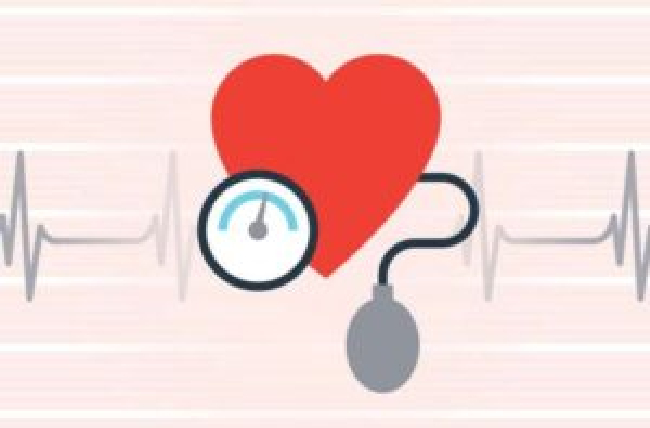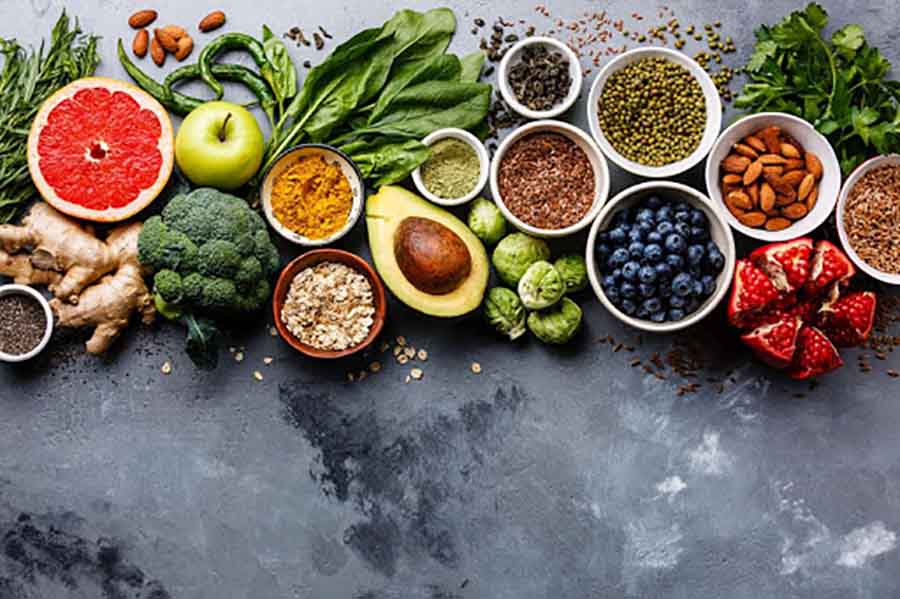Eating a plant-based diet improves the health of your gut so you are better able to absorb the nutrients from the food that support your immune system and reduce inflammation. Fiber can lower cholesterol and stabilize blood sugar and it’s great for good bowel management.
Choosing plants will help all your body’s systems work the best they can. Be sure if you eat a plant-based diet you choose one from clean, whole foods to optimize all of these benefits.
Eating plant-based does not mean you can’t eat meat. It means your meals are mostly plants: vegetables, whole grains, and fruits. Beans, seeds, and nuts are also included. Fill two-thirds of your plate with these plant-based foods. The remaining one-third should be a lean protein like chicken or fish or a plant protein like tofu or beans. You can also go full vegan with plan based diets with focus on the nutritional requirements necessary for the body.
1. MAINTENANCE OF BLOOD PRESSURE:
Most people living a plant-based diet automatically have lower blood pressure due to a higher intake of potassium-rich foods. Potassium helps lower blood pressure that leads to stress and anxiety. Plant based diets are also free from fats and cholesterol which helps in maintaining optimum blood pressure in the body.

Most whole grains, legumes, nuts, seeds, and all fruits and vegetables contain high amounts of potassium and Vitamin B6 (which also helps lower blood pressure). Meat and most animal foods contain little to no potassium and raise blood pressure and cholesterol.
2. KEEPS THE HEART HEALTHY:
A plant-based diet is the only diet proven to prevent and reverse heart disease; no other diet can make that claim. Research presented during the American Heart Association’s Scientific Sessions 2017 showed that plant-based diets decreased the risk of heart failure by 42 percent among people with no history of heart disease.

Diets composed of more healthful plant-based foods were tied to a lower coronary heart disease risk and less healthful plant-based diets were associated with a higher coronary heart disease risk.
3. PREVENT TYPE 2 DIABETES:
The prevalence of type 2 diabetes is rising worldwide, especially in older adults. Diet and lifestyle, particularly plant-based diets, are effective tools for type 2 diabetes prevention and management. Plant-based diets are eating patterns that emphasize legumes, whole grains, vegetables, fruits, nuts, and seeds and discourage most or all animal products.

Cohort studies strongly support the role of plant-based diets, and food and nutrient components of plant-based diets, in reducing the risk of type 2 diabetes. Evidence from observational and interventional studies demonstrates the benefits of plant-based diets in treating type 2 diabetes and reducing key diabetes-related macrovascular and microvascular complications
4. WEIGHT REDUCTION:
If you’re consuming whole foods on, plant-based diet (especially one that’s low in fat and processed sugars), you’re likely to experience better weight management. A food rich in required nutrients and low in fats may improve your chances of losing weight even more, even though cooked foods may help with nutrient absorption.

Weight loss (if that is what you need health-wise) can naturally occur when you consume more fiber, vitamins, and minerals than you do animal fats and proteins. Kathy Freston, a vegan wellness expert, says that within two weeks of a plant-based diet, most people lose five pounds without going hungry or feeling deprived.
5. LIFE LONGEVITY:
According to a recent report on the largest study of vegetarians and vegans to date, those eating plant-based diets appear to have a significantly longer life expectancy. Vegetarians live on average almost eight years longer than the general population, which is similar to the gap between smokers and nonsmokers.

This is not surprising, given the life expectancy is getting lower by the passage of time. A diet of minimally processed foods close to nature, predominantly plants, is decisively associated with health promotion and disease prevention. Another article based on research from Spain reported that even among those consuming meat, fish, eggs, and dairy, eating more plant-based was associated with less early death.
6. REDUCE THE RISK OF CANCER:
A healthy immune system is essential for reducing your risk for cancer because it can recognize and attack mutations in cells before they can progress to disease. A low fat, whole foods plant-based diet is the number one way to improve your chances of avoiding cancer risks.

Animal foods have been linked to cancer, especially colon and breast cancer A plant-based diet helps maintain a healthy weight. Staying at a healthy weight is one of the most important things you can do to reduce your risk for cancer. When it comes to cancer, the only thing more important than maintaining a healthy weight is not smoking.
7. LOWERING OF CHOLESTEROL:
Speaking of lower cholesterol, it’s one of the main benefits you’ll receive from embracing plant-based foods. Most people don’t know that plants contain NO cholesterol, even saturated sources like coconut and cacao. While you should balance your fat intake no matter if you’re vegan or not, a plant-based diet is one of the simplest ways to lower cholesterol.

Consider this: one egg has twice the amount of cholesterol as a fast-food hamburger and fish contains almost or even more cholesterol than meat or poultry, depending on the type you eat. Plant foods like vegetables, fruits, whole grains, nuts, and seeds can lower rates of cholesterol and heart disease.
8. MINIMIZING THE RISK OF STROKE:
Researchers from Taiwan concluded that following a plant-based diet that includes mostly fresh fruits and vegetables, unsalted peanuts, and whole grains and oats may help reduce the risk of having a stroke.

Increasing intake of fruits, vegetables, whole grains and minimizing or avoiding intake of meat and processed foods has been associated with decreased prevalence of obesity, hypertension, dyslipidemia, and diabetes. Intervention studies have demonstrated benefits from very low-fat, high-fiber plant-based diets in the treatment of these conditions.
9. BENEFICIAL FOR MENTAL HEALTH AND STRONG BRAIN:
Harvard Medical School counts several categories of foods common in vegetarian and vegan diets as brain boosters clinically proven to aid cognition and mental health, including flavonoid-rich berries, greens like kale, and walnuts—not surprising, considering they resemble the very organ they are purported to help.

A plant-based diet also has been shown to reduce your risk for heart disease, stroke, diabetes, and some mental health illnesses.












